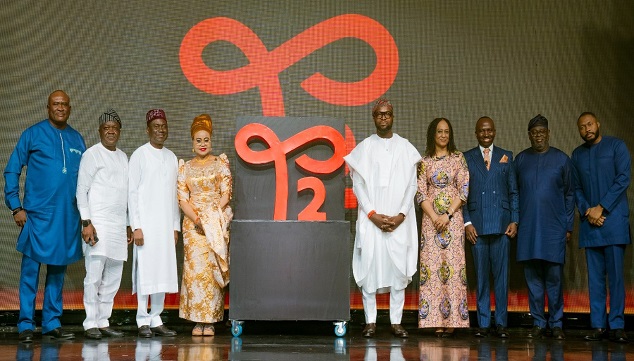Telecom
Telcos Threaten to Withdraw USSD Service as Banks’ Debt Hits N200Bn

Association of Licensed Telecom Operators of Nigeria (ALTON), the umbrella body of telecommunications companies in Nigeria, has threatened to withdraw unstructured supplementary service data (USSD) service as banks now owe telcos N200 billion for the service,

Gbenga Adebayo, chairman, ALTON, stated this at industry interactive session with Dr Aminu Maida, new executive vice chairman/chief executive officer, Nigerian Communications Commission, (NCC), yesterday,
Adebayo, said the banks’ refusal to pay the debt will have negative consequence on the Central Bank of Nigeria’s cashless economy agenda for the country.
“The banks owe us money. The debt is now over N200 billion. It won’t go away, no one will forget the debt if the money is not paid” Adebayo said in his goodwill address to the EVC.
He said;“The debt is rising and has not been paid by the banks. As of November 2022, the accumulated debt rose to over N80 billion. When we started the argument in 2019, it was N32 billion, and they continue to claim that they are not owing, but our investigation shows that they are still using the USSD platform to offer banking services to their customers, yet they are not remitting to telecom operators who own the USSD platform.
“Time will soon come when we will be constrained to withdraw the service and many bank customers that depend on the USSD service will suffer for it and it will affect the economy. It is hounorable to pay their debts and they have to pay.
“We are warning that the banks’ action in refusing to pay their debt, will have negative consequence on the CBN’s cashless economy agenda for the country. It will be a threat to cashless economy. So, CBN should advise money deposit banks to pay up the accumulated debts.”
Telecom
T2 Commits to Innovation, Resilience as Customer-centric Ethos Form New Focus

The rebranding of 9mobile to T2 is a key milestone within the company’s comprehensive four-phase recovery roadmap—Stabilisation, Modernisation, Transformation, and Growth—launched following the landmark 2023 acquisition of 9mobile by Lighthouse Telecoms, led by business leader and investor, Mr. Thomas Etuh.

Since the takeover, the company has made sweeping changes, including the constitution of a revitalized board, appointment of new executive leadership, and execution of a strategic infrastructure-sharing agreement with MTN Nigeria. This agreement, the first of its kind at scale in the country, has already led to the company significantly expanding its network coverage, capacity, and resilience nationwide.
Now entering the “Transformation” phase, the brand is embracing a new name, T2, and a new ambition: to lead in innovation, customer experience, and digital lifestyle enablement. The T2 identity reflects a forward-thinking, technology-driven, and customer-centric ethos designed to resonate with Nigeria’s increasingly digital and mobile-first population.
“This is not just a logo change, it’s a total evolution of who we are, why we exist, and how we deliver value,” said Obafemi Banigbe, Chief Executive Officer of 9mobile. “T2 represents our next chapter. It is a symbol of our renewed commitment to innovation, resilience, and a deepened focus on customer experience. We are building a brand that is ready to thrive in the digital economy.”
Thomas Etuh, Chairman, Emerging Markets Telecommunications Ltd, echoed similar sentiments, describing the occasion as one that is significant in many respects for the 9mobile brand, as it represents the start of a new phase of life, a fresh start, rebirth, change or transformation, growth, reawakening, and a new order.
“Today marks a new beginning for the 9mobile business. The march has been tedious. The journey has been exhausting. It was faith and love for country that prompted my foray into the acquisition of the 9mobile business. I knew it was a tough call,” Etuh said, and thanked stakeholders like the Nigeria Communications Commission (NCC) and 9mobile customers for standing by the brand through all its trials and challenges, including multiple litigations.
“To our amazing customers, please accept my profound gratitude for believing in us. I know our challenges have impacted you in one way or the other. But there is a resilient spirit we share with you. We are rising together again. Together, with you, we are reclaiming all lost grounds,” Etuh said.
Also speaking at the event, the Minister for Communications, Innovation and Digital Economy, Dr. Bosun Tijani, commended T2 for its bold move and vision to invest in the Nigerian economy and counselled that the rebranding should go beyond a change of name.
“My message to T2 (formerly 9mobile) is simple – let this rebrand be more than a change of colours or new logo, but let it be a renewed commitment to innovation, to service excellence and to the millions of Nigerians whose lives and businesses depend on your network every single day. Our government will continue to work with ecosystem players like T2 who are bold enough to invest, agile enough to adapt and visionary enough to see that the future belongs to those who embrace change before it’s forced upon them,” he said.
Speaking in the same vein, the Secretary to the Lagos State Government, Barr. Bimbola Salu-Hundeyin, who represented Governor Babajide Sanwo-Olu, affirmed the alignment between T2’s mission and the state’s digital goals.
“T2 has come at the right time. Its focus on digital innovation aligns seamlessly with the Lagos State Government’s vision for a robust digital economy that empowers citizens, businesses, and communities. We welcome partners like T2 who are committed to driving inclusive and transformative growth in our state,” she said.
The transition will be rolled out in deliberate phases, ensuring continuity and seamless service for existing customers while gradually introducing the market to the T2 narrative. At its core, T2 will focus on four key pillars: Speed, Smart Living, Digital Lifestyle, and Trust.
With customer expectations evolving rapidly and technology redefining the rules of engagement, the T2 brand aims to serve as a bridge between connectivity and culture, telecommunications and lifestyle, infrastructure and impact.
As the Nigerian telecoms sector moves into a new decade of transformation, T2 is poised to not just participate, but to lead.
Telecom
I see Crisis, Resignations @ MTN, Airtel, Others – Primate Ayodele

Primate Elijah Ayodele, leader of INRI Evangelical Spiritual Church, has released fresh prophecies regarding Nigeria’s telecommunication companies, including MTN, Airtel, and the newly reformed T2, formerly known as 9mobile.

Primate Elijah Ayodele
In a statement signed by Osho Oluwatosin, media aide to Primate Ayodele made it known that MTN will have challenges and run into a shortage.
He stated that he sees resignations from top officials in the company while warning of a potential network crisis that will affect the company negatively.
“MTN: They will have challenges that will disorganize them and make them run into a shortage. They will want to carry out expansion, but some of their major cables will be damaged, and I see some of their officials resigning due to unexpected things that will be happening. MTN needs to be careful not to see situations of customers leaving the company. They will have serious network issues in September that people will be complaining about bitterly.”
For Airtel, Primate Ayodele warned the company to be careful of the board crisis, while revealing that they will face marketing issues at the grassroots level.
“Airtel: they must be careful so there won’t be any board crisis. They will want to step up in many ways, but there will be problems in the grassroots. The company’s marketing will have lots of issues in communicating to people at the grassroots level. Airtel will also have terrible network problems in November.”
For T2, Primate Ayodele stated that the company will start on a good ground, but they will not be able to achieve what was set out to be achieved.
He urged the company to look into some issues spiritually as he foresees a struggle to meet up with other telecommunication companies.
“T2: The company will start on a good footing, but there will be a lot of things they will want to do but will face problems. The crisis of the company isn’t yet over, it will be up and down, and the organization will struggle to surpass other telecommunication company. The new devices the company will introduce will still have problems, it’s an issue to be looked to spiritually. The company is ready to improve, but attaining improvement will create problems.”
Furthermore, the cleric stated that there will be more telecommunication companies in the country, stating that there will be a form of recapitalization and a new procedure that will disqualify some of the telcos.
“Generally, there will be more telecommunication companies that will come to challenge the existing ones. I am seeing the government introducing new codes and a form of recapitalization that will disqualify some companies. I am seeing a telecommunication procedure that will also disqualify some telcom companies.”
Telecom
MTN Nigeria’s Mega Billion Promo Turns Airtime into Fortune for Thousands Amid Economic Strain

MTN Nigeria is offering a refreshing dose of optimism through its Mega Billion Promo—a nationwide campaign designed to reward customer loyalty with real cash prizes.

Launched on June 23, the 90-day promo aims to create 195 millionaires and distribute over ₦1 billion in cash via MTN’s MoMo Payment Service Bank.
So far, more than 1,500 subscribers have won a combined ₦290 million, including three jackpot winners and 20 recipients of ₦5 million each.
“In the last couple of years, it’s been a very tough time for Nigerians,” said Onyinye Ikenna-Emeka, MTN’s Chief Marketing Officer.
“This Mega Billion promo is one of the ways we’re showing appreciation and making life better for our customers.”
MTN subscribers aged 18 and above can participate by dialing *900#, using the MyMTN app, or texting ‘MEGA’ to 900.
Every ₦100 recharge earns one point toward daily and Saturday draws. Recharges can be made via bank apps, VTU, MoMo, or USSD channels.
Prizes range from ₦25,000 to ₦5 million on weekdays, with a ₦10 million top prize available during Saturday’s Mega Draw.
Customers can win multiple times, and all winnings are paid directly into the winner’s MoMo wallet, which can be activated by dialing *671#.
Independent partners manage the promo to ensure transparency and fairness. Daily draws are broadcast live on MTN’s Instagram, Facebook, and YouTube pages, and winners are contacted directly via the MTN Call Center on 300.
MTN describes the initiative as part of its ongoing effort to appreciate customers and strengthen relationships.

 Telecom3 days ago
Telecom3 days agoMTN’s mPulse Spelling Bee Returns with Regional Competitions and ₦40M in Prizes

 Telecom3 days ago
Telecom3 days agoMTN Nigeria Launches Cloud Accelerator to Power Africa’s Startup Future

 E-Business3 days ago
E-Business3 days agoArtificial Intelligence: The Indispensable Catalyst for Nigeria’s Agricultural Revolution

 Telecom3 days ago
Telecom3 days ago9mobile Rebrands as T2, Vows to Shake Up Telecom Sector

 Broadcasting3 days ago
Broadcasting3 days agoAmaarae Crowned Spotify’s EQUAL Africa Artist for August

 Telecom3 days ago
Telecom3 days agoNigeria Mulls Trust Fund to Preserve Telecom Infrastructure

 General News3 days ago
General News3 days agoNigerian Scientists Await Return of Egusi Seeds Sent to Space

 News18 hours ago
News18 hours agoGoogle Hit by AI-driven Cyber Attack

























